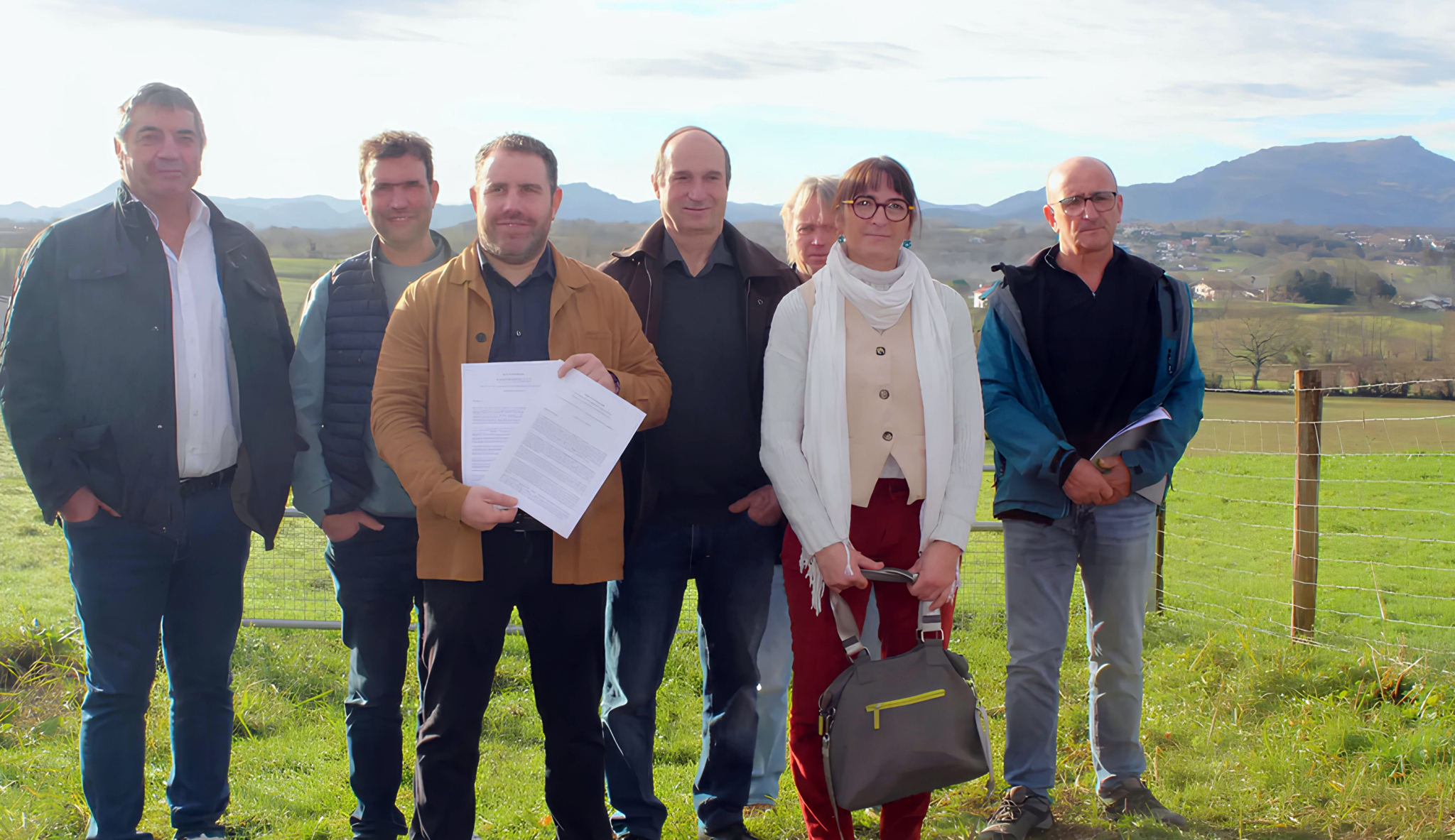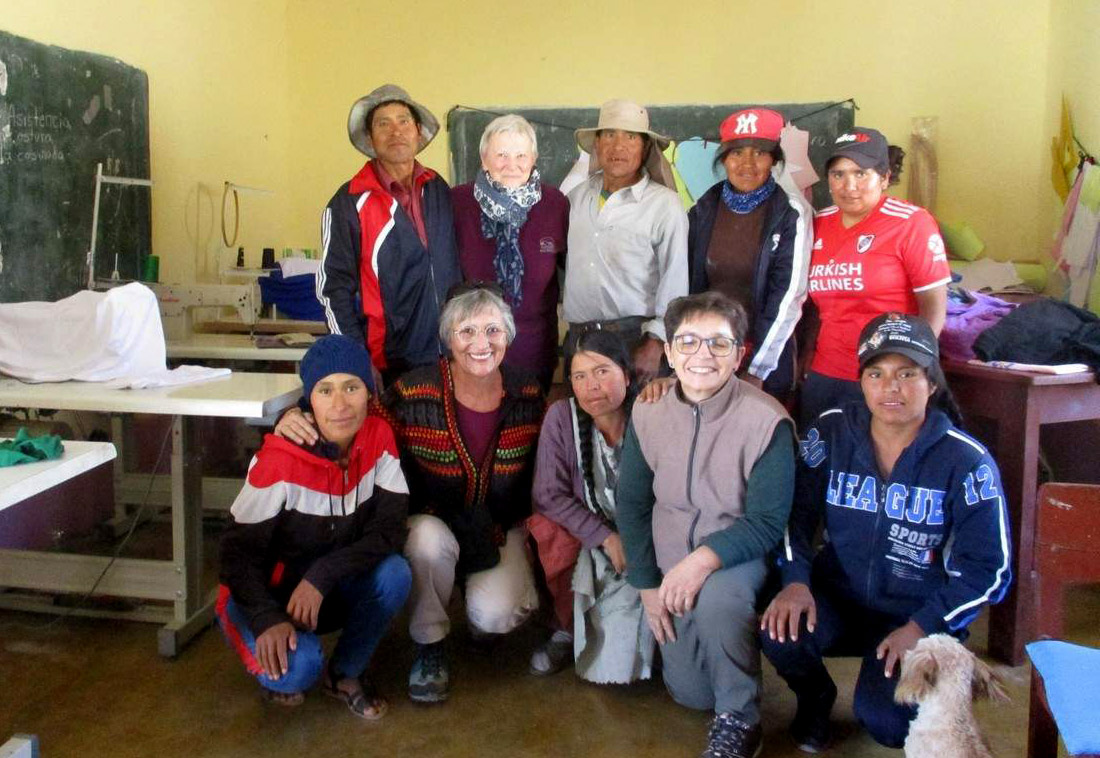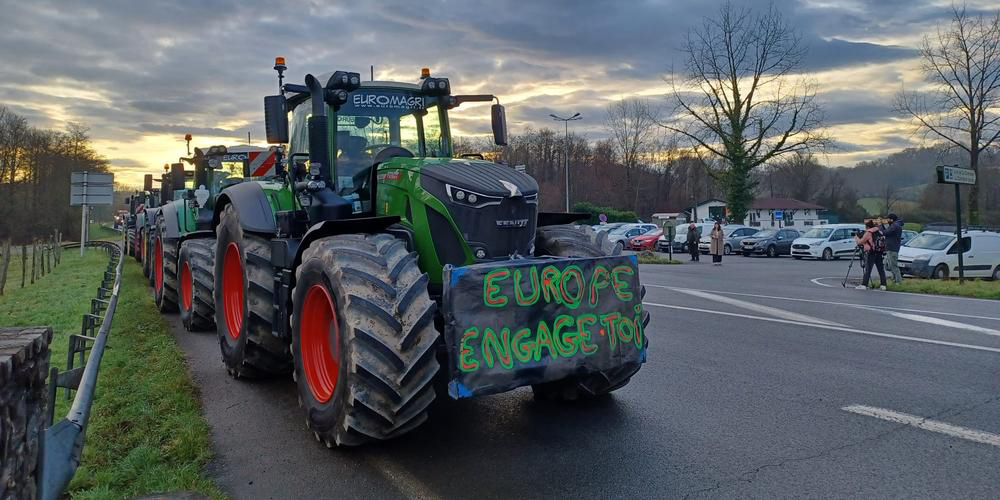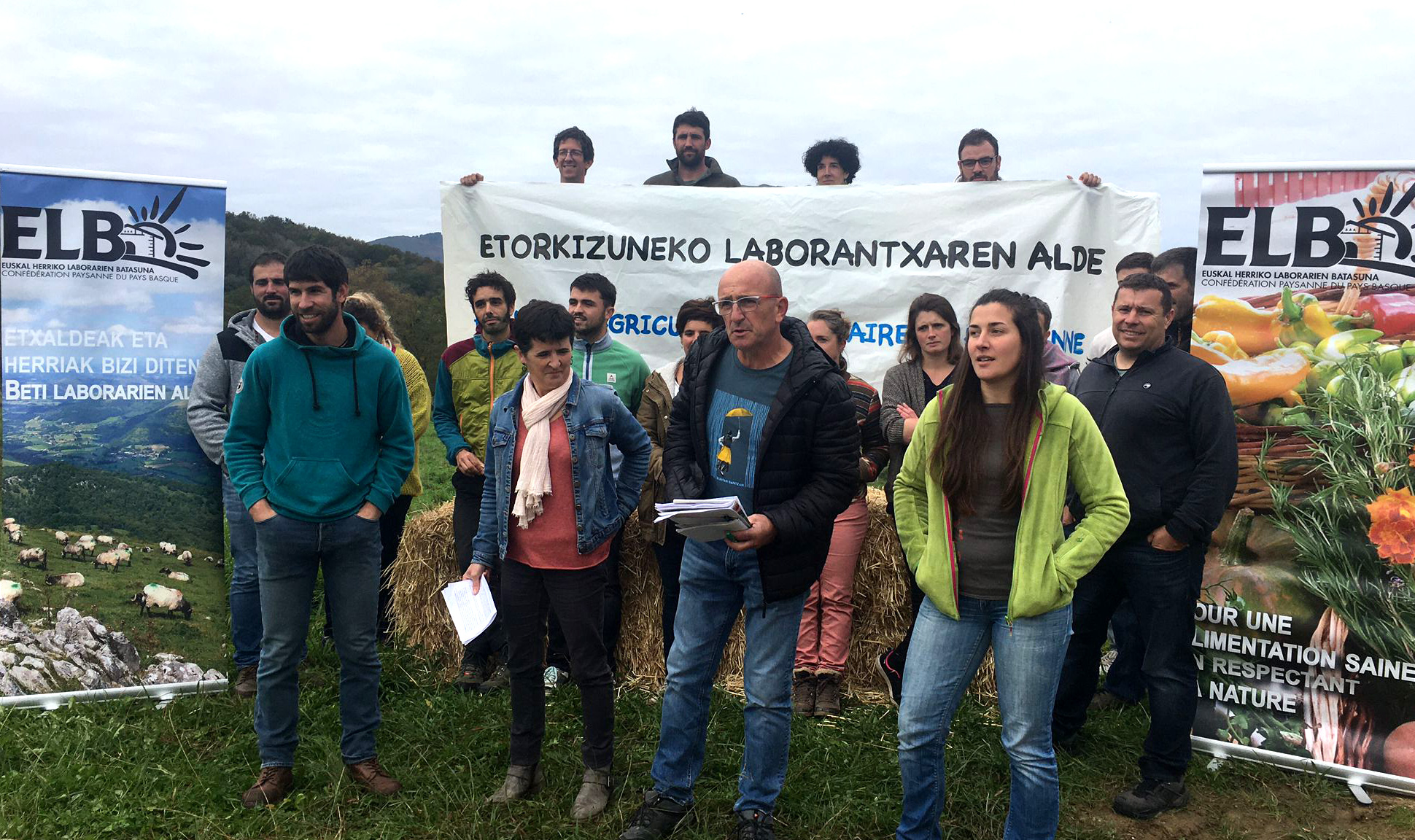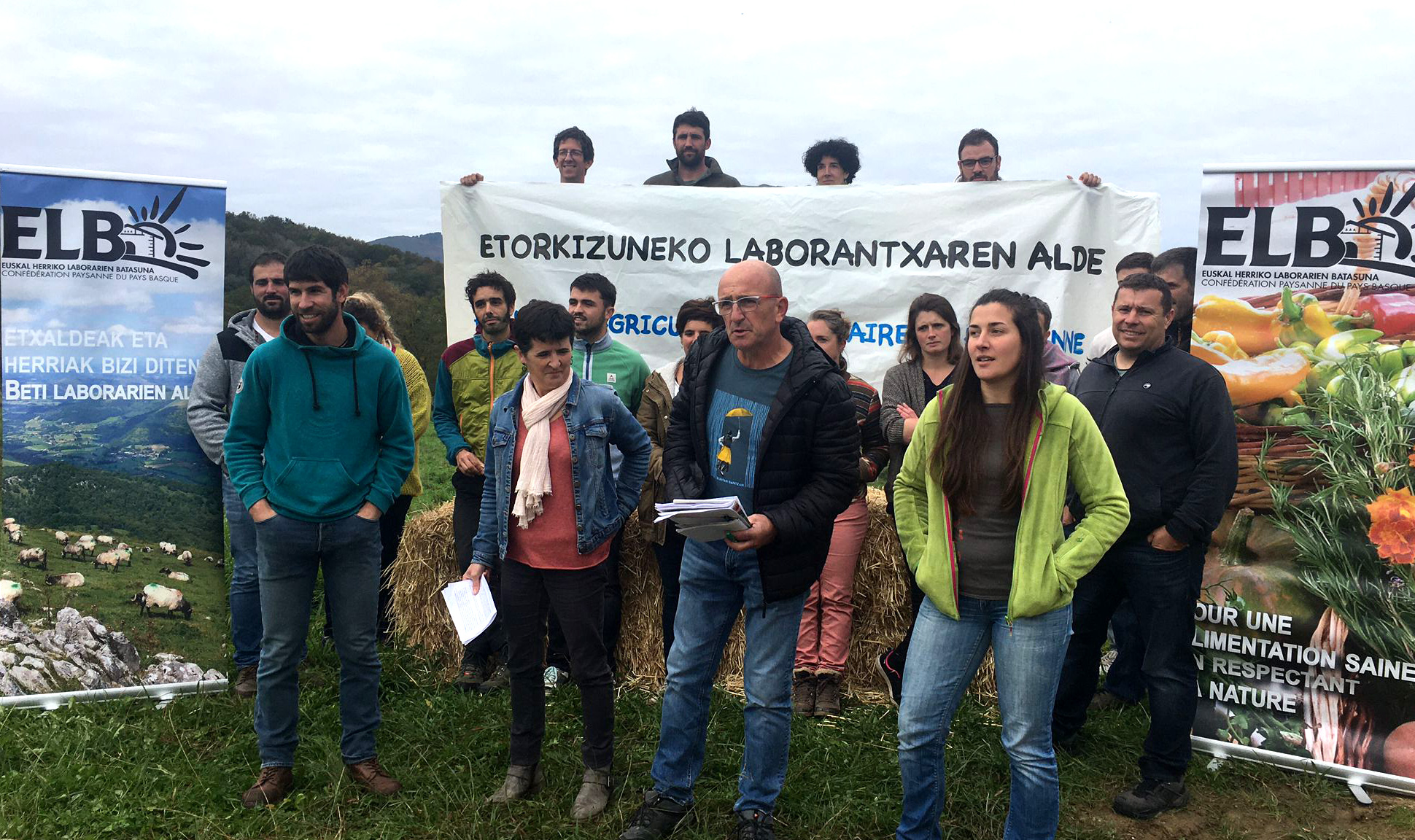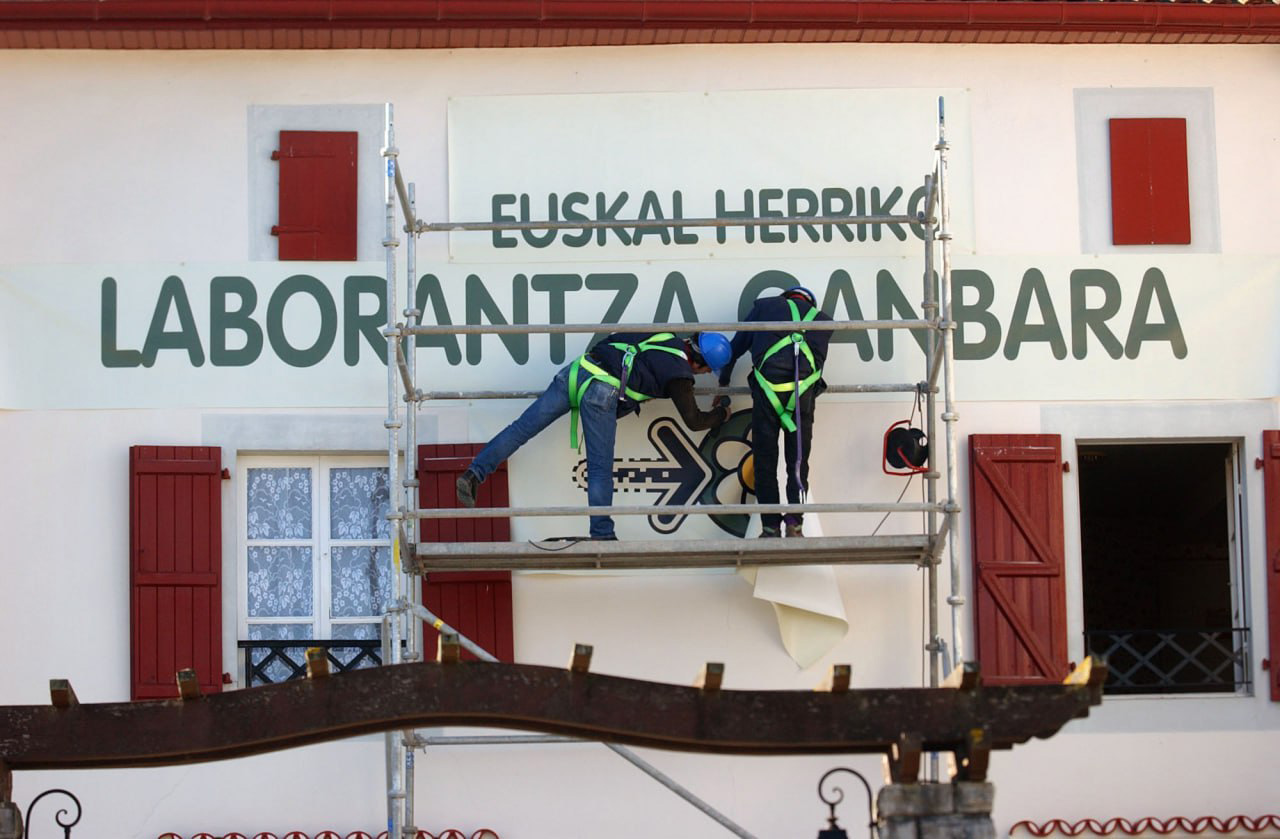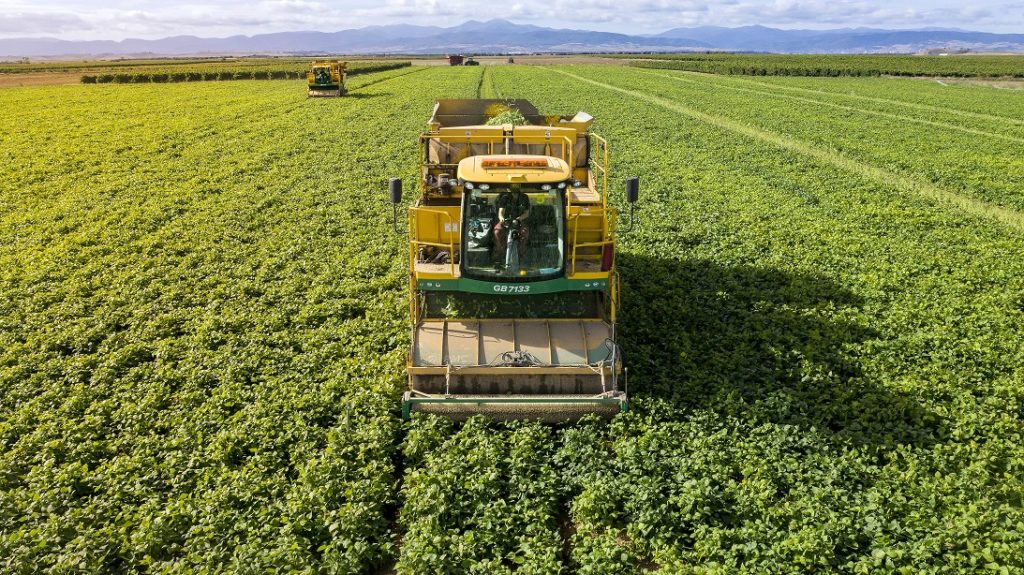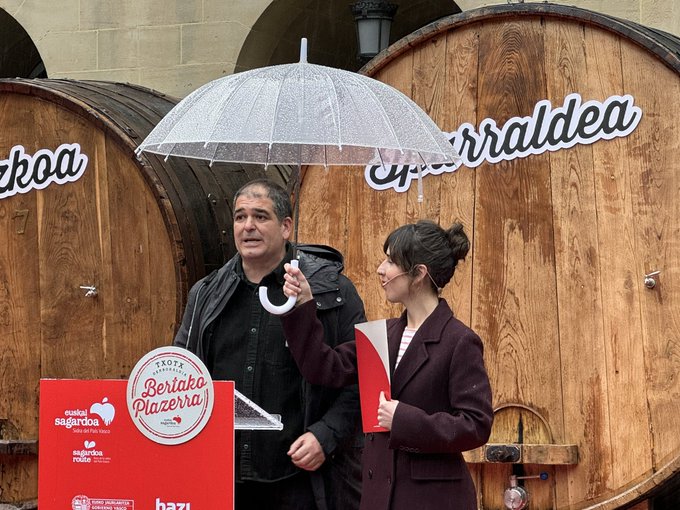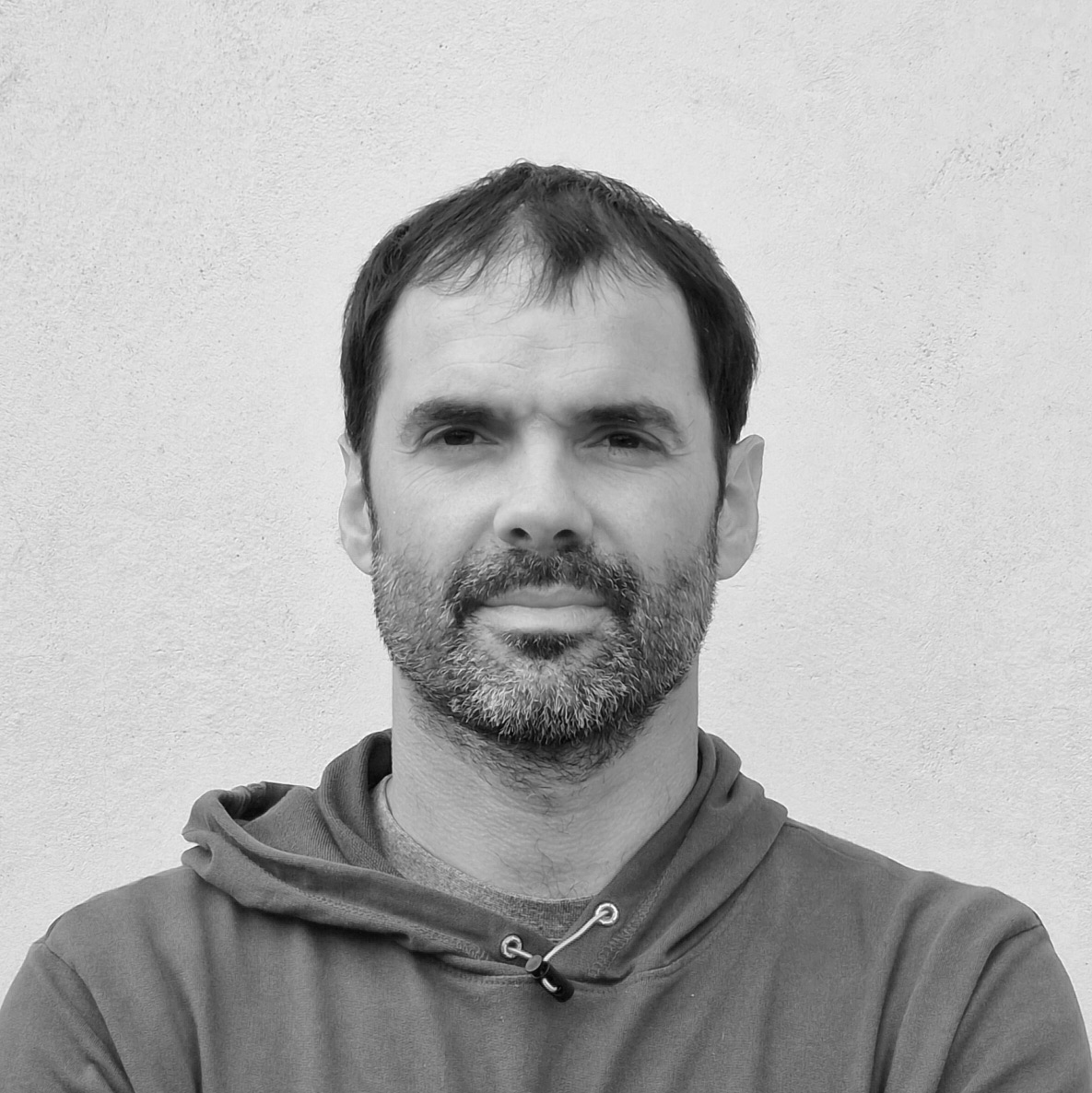They want to open the era ‘Laborantza 4.0’ to paint in green and continue with productivism
- They say the crop is going to enter the third revolution. The first took place in the seventeenth and eighteenth centuries, with the end of the fallow lands and the development of new logics and production techniques for greater exploitation of the soil; the second, in the twentieth century, with the machining and dissemination of condiments and chemical plant protection products. There are institutions, unions and multinationals that claim that the third is on the way, or at least they want it on the way. In new technologies, we have a revolution based on big data and algorithms. Also in the name of sustainable development.

“Culture 4.0”, Smart Farm, “precision culture”, “numerical culture”, “smart culture”… are all the new notions to define the change that some people would want to bring in the primary sector. Whether robots, drones, computers, chips or cameras, the integration of numerical technologies into food production is increasingly taking place between institutions and multinationals, but it costs more to spread them among farmers. Robot detector herbaceous, milking, or pollination by bee substitution, which tries to introduce artificial intelligence and technology into the food chain. They say that the data and algorithms gathered in big data allow us to know exactly what their needs are for each terrain or cabal in each case, avoiding unnecessary waste, hence the notion of “precision culture”.
Private companies have long dreamed of controlling the entire crop. Because we always have the need to eat to satisfy it, because it can be a constant source of income. Since the 1990s, GMOs have been trying to become masters of the world thanks to the ownership of genetically modified seeds. Now, however, they do so by means of numbers. The multinational Bayer acquired in 2018 a Monsanto specialized in the production of OMGs, which is currently investing in numerical crops, becoming the leader mundial.Destinado to the numerization of the crop with 500 workers in 2020, since 2017 multiplied by 2.5 the number of workers employed for this purpose. He is accompanied, among others, by the powerful producer Yara and the multinationals McDonald's or Walmart, symbols of capitalism.
One has to worry about what Morgan Ody, a Confédération Paysann farmer, writes in his text Nous, paysans, refusons the colonisation of the UN par l’agrobusiness (“The peasants reject the colonization of the UN by agrobusiness”): “His aim is to round the industrialization of food production, by means of the total artificialization of the process. Finally, ‘smart laborantza’, based on robotization, big data, chemistry and biotechnologies, aims at uncultivated cultivation”. That is why Via Campesina, a small farmers' union, was opposed from the outset: “With the notion of ‘smart culture’ they want to put a green mask on the agro-industrial logic.”
Most of the start-ups that drive this transformation are in the US, China and India, and as one might think they are not cooperatives or associations formed by peasants... They are basically the same ones that at the time were spread by pesticides and then by transgenic ones, and now numerical cultivation is being praised. Once again we have the trade unions promoting intensive and industrial production. This is what Christine Lambert, President of the FNSEA, says: “The use of the robot is a way to reduce the spread of plant protection products.” The problem is that instead of encouraging popular and ecological cultivation to reduce the spread of plant protection, they prefer robo-led agriculture.
The institutions are also part of developments, including the European Union. The Horizon Europe programme, dedicated to research and innovation, has a budget of EUR 95.5 billion for 2021-2027 – 5.4 billion from the EU Next Generation Plan – of which EUR 8.95 billion is earmarked for food, cultivation and the environment. The PIA Future Investment Plan4 agreed by the French Government last year also has EUR 100 million for private companies in this area. The Inra public structure has created 200 star ups in the last twenty years, and in recent times has specialized more and more in Laborantza 4.0.
The lifelong motto: the fight against climate change
As could not be otherwise, the GACSA platform, created by the UN for the 2014 climate summit. “Emphasizing the need to innovate in the face of the climate emergency, GACSA is endorsing the cultivation model in the front line of agro-industrial lobbies” can be read in the document produced by non-governmental organisations Action contre la faim, CCFD-Terre Solidaire and Oxfam.El 24% of greenhouse
gas emissions worldwide come from cultivation, 10% at European level. But beware, the disease is in the industrial model: animal feeds deduct methane spill, chemical condiments spread in monocultures and deforestations aimed at increasing the extension of this model. For example, the African continent, which has 55 per cent of its crop workers, has only 15 per cent of primary sector emissions, and only 4 per cent of global emissions come from Africa.
This does not make sense the numbering of the industrial model. Painting in green will not solve the problem of the climate emergency, either by a robot or by a labrador, as it will always contaminate the chemical condiments. In addition, we know that the production of new technologies greatly pollutes, for example with the exploitation of minerals.
They have as their second argument the solution against hunger, as with GM. By 2050, we'll have 10,000 million people and we'll have to increase production, but we'll have to reverse the greenhouse effect. “Precision cultivation provides technological solutions to social, political and ecological problems, but these solutions are designed to maintain conventional models. High, we know that the system is responsible for the problems”, you can read The combine will tell the truth of Christopher Miles: On precision agriculture and algorithmic rationality (“The harvest denounces the truth about the rationality of crops and precision algorithms”) in the juicy article. This idea that explains serves breakfast, which in the world has 10% hunger, but at the same time 20% of food goes to waste; for the shortage of workers – a quarter of European farms have disappeared in the last ten years, but production has increased – for the precariousness of farmers, and others.
Whether it be rigorous legislation, an unfair subsidy or a liberal and globalised market, the peasant has many obstacles to free and dignified action in his home. This new era would mean a new dependency on the powerful big data and GAFAM -- a solution that, once again, would hurt.
Lurraren alde borrokan dabilen orok begi onez hartu du Frantziako Legebiltzarrak laborantza lurren babesteko lege-proposamenaren alde bozkatu izana. Peio Dufau diputatu abertzaleak aurkezturiko testua da, eta politikoa eta sentimentala juntaturik, hemizikloan Arbonako okupazioa,... [+]
203 diputatu alde eta hiru aurka agertu dira martxoaren 11 gauean egin bozketan. Higiezinen agentziak haserre agertu dira, eta bi salaketa aurkeztu ditu FAIN Frantziako Higiezinen Federazio Nazionalak Europako Batzordean. Bata, lege-proposamenari esker botere gehiago jasoko... [+]
Laborantzaren Orientazio Legea pasa den astean ofizialki onartu du Frantziako Parlamentuak. Ostegunean Senatutik pasa da azken aldikoz. Iazko laborarien mobilizazioen ondotik, aldarrikapenei erantzuteko xedea du lege horrek. Aldiz, ingurumenaren aldeko elkarteek azkarki salatzen... [+]
Zubiak eraiki Xiberoa eta Boliviaren artean. Badu jadanik 16 urte Boliviaren aldeko elkartea sortu zela Xiberoan. Azken urteetan, La Paz hiriko El Alto auzoko eskola bat, emazteen etxe baten sortzea, dendarien dinamikak edota tokiko irrati bat sustengatu dituzte.
Datorren astean Departamenduko Laborantza Ganbarako hauteskundeak ospatuko dira Ipar Euskal Herrian. Frantzia mailako FDSEA eta CR sindikatuez gain, ELB Euskal Herriko Laborarien Batasuna aurkezten da, "euskal laborarien defentsa" bermatzeko.
Euskal Herriko Laborantza Ganbera elkartearen hogei urteak ospatu zituzten asteburuan Ainhize-Monjolosen. 2005eko urtarrilaren 15 hartan sortu zuten Lapurdi, Baxenabarre eta Zuberoako laborantzaren garapena –hori bai, iraunkorra eta herrikoia izan nahi duena–... [+]
Departamenduko Laborantza Ganbarako hauteskundeen kanpaina abiatu da. Urtarrilaren 14an bozetara aurkezten diren hiru sindikatuen ordezkariekin bi oreneko eztabaida sakona antolatu zuten Euskal Hedabideek, osoki euskaraz.












